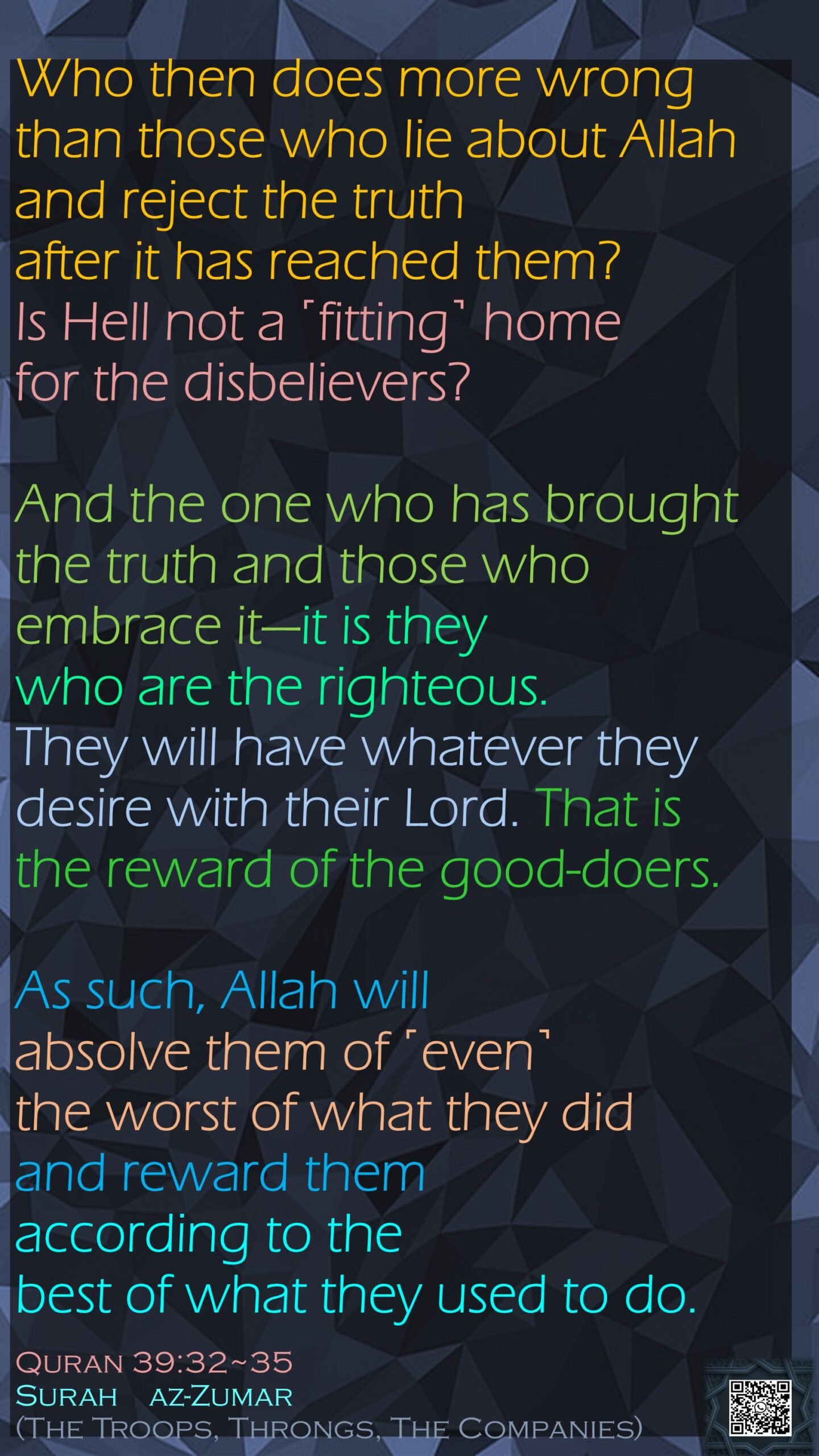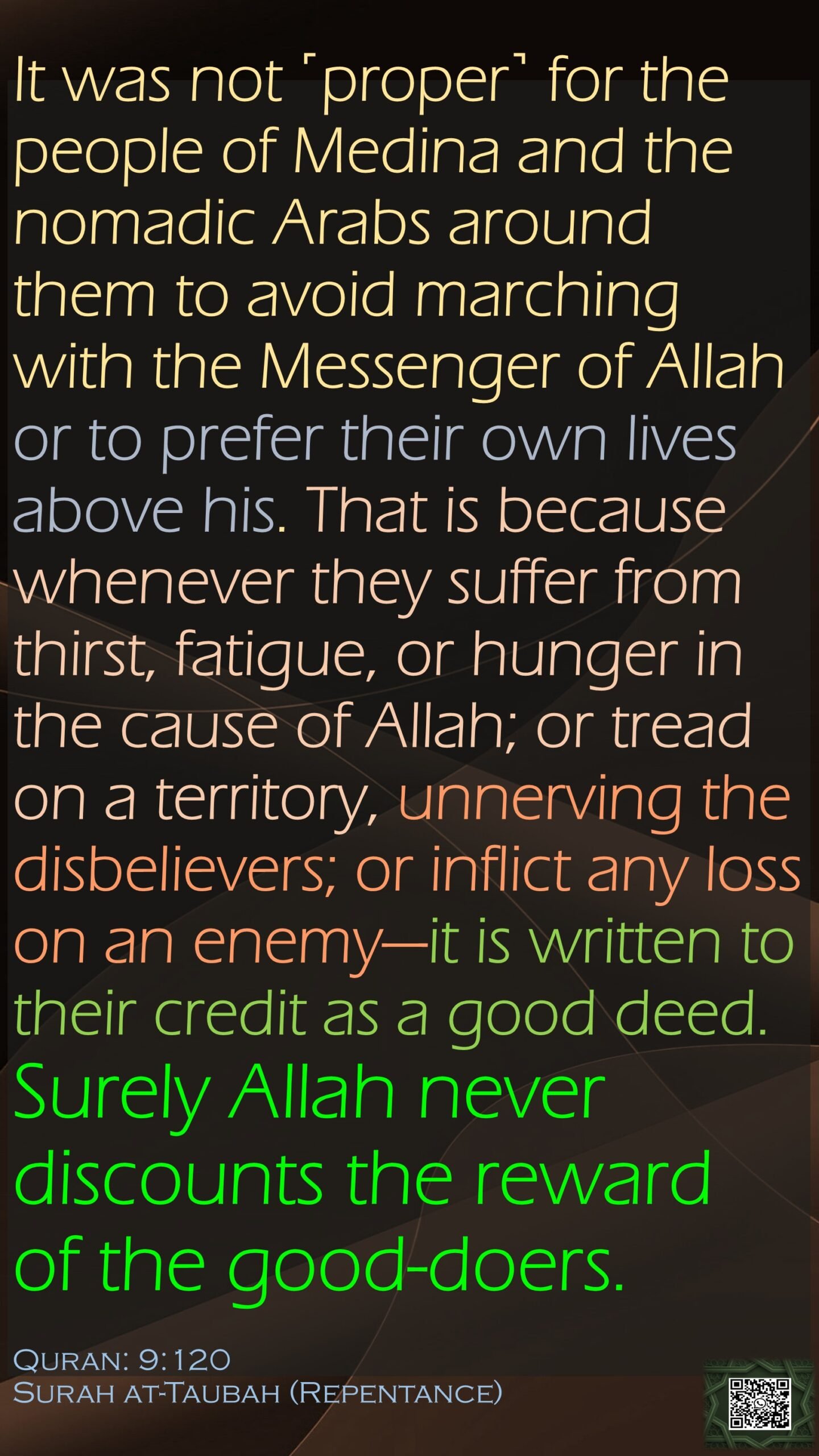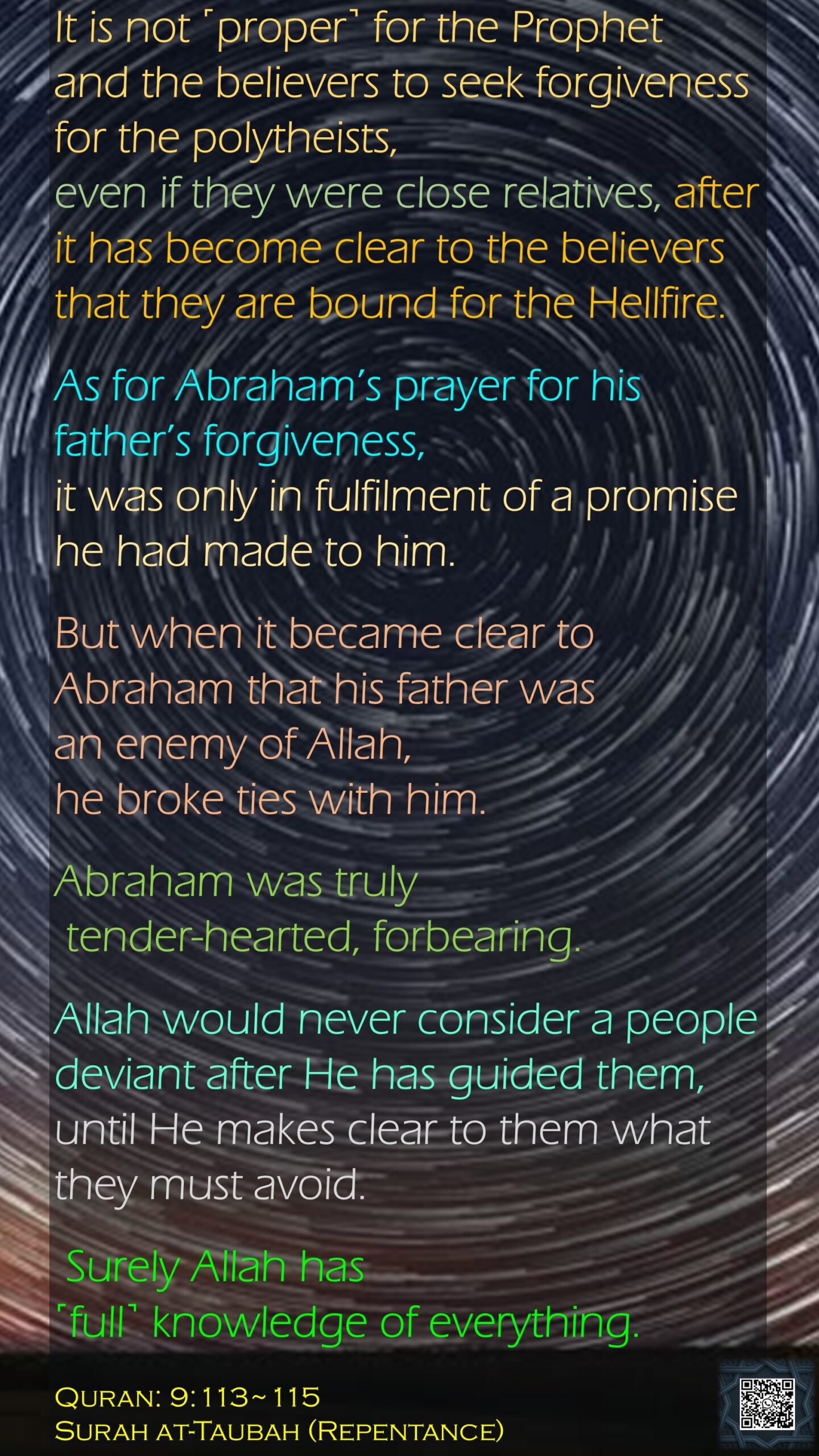26
Feb, 2026
5
Jul, 2025
Quran 13:33~34 (Ayah ar – Ra`d)
Islam, Quran Allah, appeal, ar-Rad, ayat, commit, daily, disbeliever, earth, empty, falsehood, gods, inform, inspirations, islam, islamic, know, knowledge, Muhammad, name, no guide, pagan, path, quran, Soul, straight, stray, Surah, thunder, turn away, vigilant, words, worship
25
Jun, 2025
Quran 9:120 (Ayah at-Taubah)
Islam, Quran 009, 120, Allah, arab, ayat, cause, daily, deed, disbeliever, enemy, fatigue, good, good doer, hunger, inflict, inspirations, islam, islamic, Life, lives, loss, march, Medina, messenger, Muhammad, nomadic, over, prefer, quran, repentence, reward, suffer, Surah, taubah, territory, thirst, tread, unnerve
21
Jun, 2025
Quran 9:113-115
Islam, Quran 009, 113, 114, 115, Abraham, Allah, avoid, ayat, believer, clear, daily, deviant, disbeliever, enemy, everything, father, forgive, forgiveness, fulfilment, guide, hell, hellfire, Ibrahim, inspirations, islam, islamic, knowledge, Muhammad, promise, quran, relative, repentence, seek, Surah, taubah
23
May, 2025
Quran 47:33~34 (Surah Muhammad)
Islam, Quran 033, 034, 047, Allah, ayat, believe, believer, channel, daily, day, deed, deeds, die, disbelieve, disbeliever, forgive, hinder, inspiration, inspirations, islam, islamic, messenger, Muhammad, never, not, Obey, Path of Allah, quran, Surah, vain, way of Allah, whatsapp
23
May, 2025
Quran 47:31~32 (Surah Muhammad)
Islam, Quran 031, 032, 047, Allah, ayat, believe, believer, cause, conduct, daily, deed, deeds, defy, disbelieve, disbeliever, guidance, guide, harm, hinder, inspirations, islam, islamic, least, Muhammad, path, Path of Allah, quran, reveal, steadfast, Surah, test, true, void, way, way of Allah
17
Nov, 2024
Quran 4:103
Islam, Quran 004, 103, Allah, An-Nisa, appointed time, ayat, believer, daily, disbeliever, duty, establish, fight, inspirations, islam, islamic, lying down, perform, prayer, quran, remember, sitting, standing, Surah
4
Nov, 2024
Quran 6:52~53
Islam, Quran 006, 052, accountable, al-anam, Allah, ayat, believer, chosen, Criteria, daily, disbeliever, dismiss, evening, favor, favour, goodness, grateful, inspirations, invoke, islam, islamic, morning, Muhammad, ones, poor, quran, rich, selection, Surah, test, wrongdoer
30
Aug, 2024










